

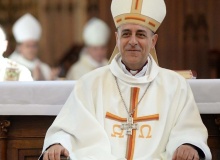
The author’s thinking on the subject is summarized as follows: “God is present in every human being from the moment of conception, not only as Creator, but also as Savior”
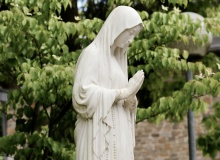
The document reiterates the view of Christ’s mediation as being “inclusive” and participatory, thus making room for Mary’s and the saints’ intercession and mediation.
.jpg)
The exaltation of the Virgin Mary in certain Catholic contexts re-opens the internal debate. Evangelical theologian Leonardo De Chirico in Rome analyses the ‘pendulum’ of the last three centuries and rules out a profound reform of Marianism.
.jpg)
In the Roman Catholic view, there is a transitive property between Christ and the Catholic Church to the point that what can be predicated of the one passes to the other.
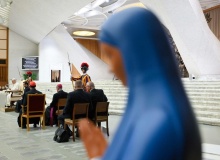
Roman Catholic Mariology always involves a thick doctrinal commitment to the full account of how Rome theologizes, celebrates, and venerates Mary. An analysis from Rome.
.jpg)
A circular sent from the Ministry of Education encourages public schools to participate in the Pope's events. The Italian Evangelical Alliance denounces a clear violation of the freedom of conscience of pupils.
.jpg)
In his first canonisation, Pope Leo XIV makes a millennial 'influencer' devoted to spreading the word about miracles and Marian apparitions a saint. Catholicism expert Leonardo De Chirico explains the context.
.jpg)
The week of July 28 to August 3, Rome was filled with groups of young people from all over the world. I followed in particular the meetings of Roman Catholic influencers, the Italian and North American groups, and the final vigil with the Pope.
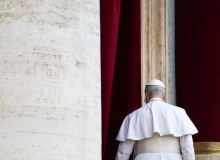
There is an expectation that Pope Leo will be able to exert an attraction from Protestantism towards Roman Catholicism in American society.

What is the office of the Pope? How does this institution fit into the global world and in the ecumenical relationships outside of Rome?
.jpg)
A prominent Roman Catholic theologian, Matthew Levering, recently wrote a book entitled 'Why I Am Roman Catholic' (2024). Defending why and why not one is Roman Catholic or Protestant is becoming a literary genre in itself.
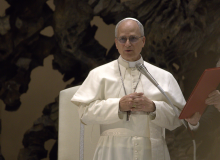
Prevost, still under 70, is a “young” pope with the possibility of a long pontificate. The conclave didn’t choose a bridge, it chose direction.
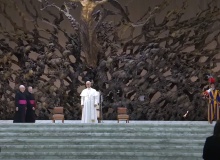
What is it that turns news professionals accustomed to questioning political and religious leaders into mere ‘fans’ when they travel to Rome to meet the new pontiff?
.jpg)
Devotion to the Virgin Mary is the true bond between all popes and even the glue that holds Roman Catholicism together.
.jpg)
Presented as Pope Leo XIV, he was an Augustinian missionary in Peru for 40 years. He holds degrees in mathematics and theology and was appointed by Pope Francis to oversee the selection process for new bishops.
.jpg)
New and old. These two words describe Pope Leo XIV, newly elected by the conclave as head of the Roman Catholic Church.
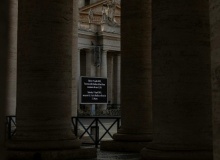
Does the Roman Catholic Church now accept that all religions lead to God? Where does this new view of religions come from? These are all legitimate questions.
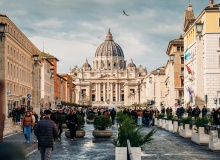
Started in 2010, the VF are a pool of resources to help evangelicals approach, understand and assess the complex reality of Roman Catholicism with gospel clarity and theological breadth.

Accretions were added in history but are now part of theology and practice. They have percolated in such a way as to modify all doctrines and practices.
.jpg)
The movie only anticipates some outcomes that are consonant with respect to the “catholic” (inclusive, all-embracing) direction that Jorge Bergoglio imprinted on the Roman Catholic Church.
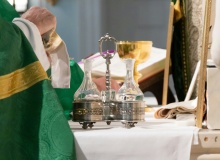
In dealing with Catholic apologetics, keep in mind that the evangelical faith is the faith that honors the lordship of Christ and the supreme authority of Scripture in all matters of faith and life.
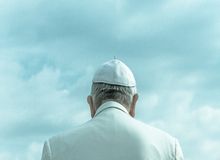
The latest encyclical of Pope Francis takes its cue from the Roman Catholic devotion to the Sacred Heart of Jesus to elaborate a more general reflection on the heart.

It is up to the church to be a magnetic people, living out the Gospel in a way that testifies to God’s authority, God’s control, and God’s presence in and over everything.
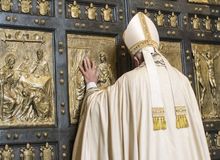
Next year will certainly be a holy year of religious tradition, but it cannot be called a jubilee in the biblical sense.
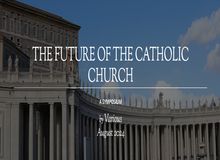
We are living through the waning and final phase of Pope Francis, and the topic of the future is not just an abstract exercise.

Las opiniones vertidas por nuestros colaboradores se realizan a nivel personal, pudiendo coincidir o no con la postura de la dirección de Protestante Digital.